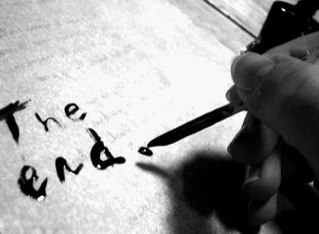As I am currently finding in my creative writing course one of the hardest things in writing is ‘the end’ – and I know from many years of experience that one of the hardest things in the business I run is to completely finish a project – to ‘get it over the line’.
Why might this be?
When comparing creative writing and projects in business, it recently occurred to me that the nature of ‘the end’ in these areas are diametric opposites. What certainly connects them is that in both spheres they are challenging – and critical.
In business we are so concerned that we need to be clear about the specifications, and so the end has to be totally known before we can start to work. It actually defines the product, from the customers viewpoint it is the whole rational for the investment they are making. To them – after their role in defining the prototype – the journey we go through with design, development and testing really is irrelevant – they just care that we produce what they requested. To us any lack of clarity about the end represents a risk – so we make every possible effort to tie up all loose ends, to be crystal clear about every aspect of the ultimate product. The end is where our customer’s experience starts.
In writing however – the product is the work that leads up to the end. The reader joins us at the beginning of the work and will care enormously about the journey – with literature this shared journey is what we are creating. The last thing any reader wants is to be able to predict the end – that would destroy the value. And the way that many successful writers seem to work is that while writing they themselves have little idea – in some cases none at all – about what will happen at the end. They can work like this because the product is not defined by it’s end.
In writing we don’t have to tie up every loose end at all – just the major ones. Some unanswered questions and unresolved minor things are perfectly acceptable. It is a positive experience for the reader to have to finish it themselves – that’s the power of unresolved endings. We need to leave a space for the reader, we don’t want to patronize them, to patiently explain every aspect, leaving them no room to imagine and to think.
The best endings in literature have an element of surprise – but then seem to be inevitable. “I didn’t expect that, but I understand now” – is the kind of response we are looking for. In business the last thing we want as we complete a project is any surprises at all.
So it seems to me that in writing the end is challenging because we cannot define it until we are nearly there – as it must be fitting – and in business we cannot start until we know it completely. But in both cases the consumers ultimate sense of satisfaction with ‘the end’ will define the project’s success – and for us both as authors and entrepreneurs this is what makes it all worth while

